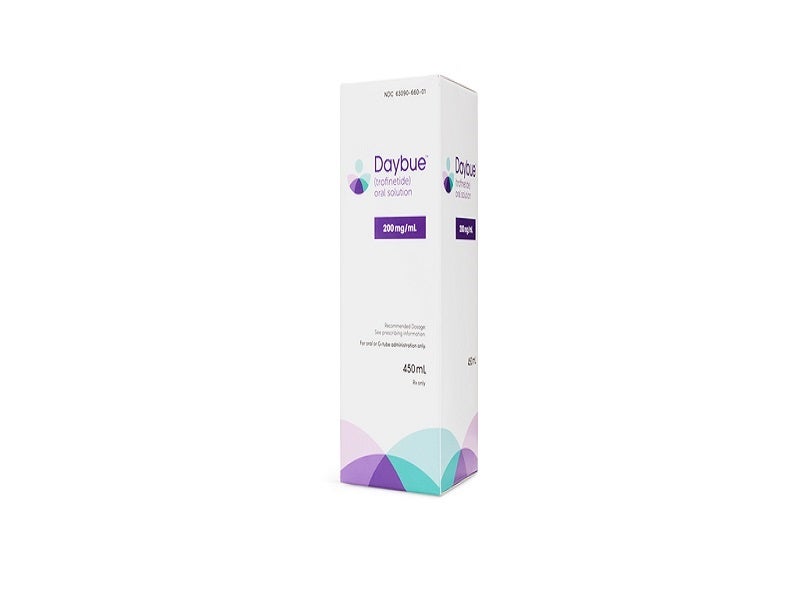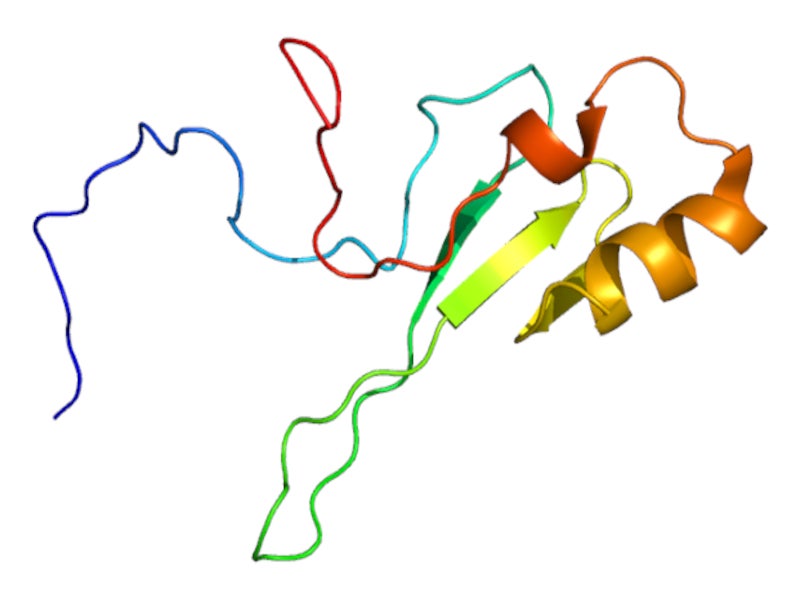Daybue (trofinetide) is indicated for the treatment of adult and paediatric patients aged two years and older with Rett syndrome, a rare neurodevelopmental disorder. It is a synthetic analogue of tripeptide glycine-proline-glutamate (GPE), a naturally occurring molecule.
Daybue was initially developed by Neuren Pharmaceuticals, a pharmaceutical company based in Australia, and licensed to Acadia Pharmaceuticals, a biopharmaceutical company based in the US, for its development and commercialisation in North America in August 2018. Neuren retains rights to develop and commercialise the drug for all indications outside of North America.
Acadia provides patient support resources through Acadia Connect, a patient and family support programme, to help caregivers and healthcare providers access the therapy.
Daybue is available as a pink to red, strawberry-flavoured solution in 200mg/ml dosage strength for oral administration.
Regulatory approval for Daybue
In March 2023, the US Food and Drug Administration (FDA) approved Daybue for the condition based on the positive data from the LAVENDER Phase III clinical trials, following the acceptance of a new drug application submitted by Acadia and granting of priority review in September 2022.
Trofinetide has been granted Fast Track Status, Orphan Drug Designation, and Rare Paediatric Disease designation by the FDA for treating Rett syndrome in the US.
Rett syndrome causes and symptoms
Rett syndrome is a rare, complex and genetic neurodevelopmental disorder that impairs brain development, resulting in severe mental and physical disability.
Rett syndrome is usually caused by a genetic mutation in the MECP2 gene, which produces a specific protein called MeCP2 that helps in brain development. The abnormality of the gene prevents nerve cells in the brain from working normally.
A child with Rett syndrome may show early signs of normal development until six to 18 months when their skills slow down or stagnate. It is generally followed by a duration of regression when the child loses acquired communication or language skills and hand use. The child may consequently experience a plateau period in which they exhibit mild recovery in their cognitive abilities, but body movements remain impaired. As they grow, patients living with Rett continue to experience a stage of motor deterioration that can last for the rest of their life.
Symptoms and the severity of Rett syndrome may vary from child to child and depend upon the onset age. Some of the symptoms include slowing development, digestive problems, cognitive problems, loss of mobility or function in the hands, trouble performing motor functions including speaking and eye movements, slowed brain and head growth, distinctive hand movements, issues in walking, seizures, and breathing difficulties including breath holding, hyperventilation, and swallowing air.
Rett syndrome affects approximately between 6,000 and 9,000 patients in the US, with about 4,500 patients currently diagnosed.
Daybue’s mechanism of action
Trofinetide is a novel synthetic analogue of the amino‐terminal tripeptide of IGF-1, which treats the core symptoms of Rett syndrome by decreasing neuroinflammation and supporting synaptic function tripeptide GPE.
IGF-1 is produced by neurons and glia, the major types of brain cells in the central nervous system and is crucial for both normal development and for response to injury and disease.
The trofinetide’s exact mechanism of exerting therapeutic effects in patients with Rett syndrome is unknown. In animal studies, trofinetide has been found to increase the branching of dendrites and synaptic plasticity signals.
Clinical trials on Daybue
The LAVENDER was a Phase III, 12-week, randomised, double-blind, placebo-controlled clinical trial in which 187 girls and young women aged five to 20 years with Rett syndrome were enrolled to evaluate the efficacy and safety of Daybue.
The co-primary endpoints of the study included changes observed from baseline after 12 weeks of treatment in the total score of the Rett Syndrome Behaviour Questionnaire (RSBQ) and the Clinical Global Impression-Improvement (CGI-I) assessment.
The RSBQ is a caregiver assessment that evaluates a wide range of symptoms of Rett syndrome, including vocalisations, facial expressions, eye gaze, hand movements (or stereotypies), repetitive behaviours, breathing, night-time behaviours, and moods.
The CGI-I is a global physician assessment to understand whether a patient has shown an improved or worsened condition.
Patients were randomised to receive either Daybue or a matching placebo for 12 weeks. The mean change observed from baseline to week 12 in the RSBQ. Total score was -5.1 and -1.7 in the Daybue and placebo groups, respectively. The mean CGI-I scores were 3.5 and 3.8 in the Daybue and placebo groups, respectively, at week 12.
The study revealed statistically significant differences in effectiveness measures between Daybue and the placebo, indicating that the treatment has the potential to alter core symptoms associated with Rett syndrome.
The most common side effects reported in patients during the clinical trials were diarrhoea and vomiting.
Out of the 187 patients involved in the LAVENDER study, 154 chose to continue their participation in the open-label LILAC extension study and are expected to meet the criteria to join the subsequent follow-up study, LILAC-2.





